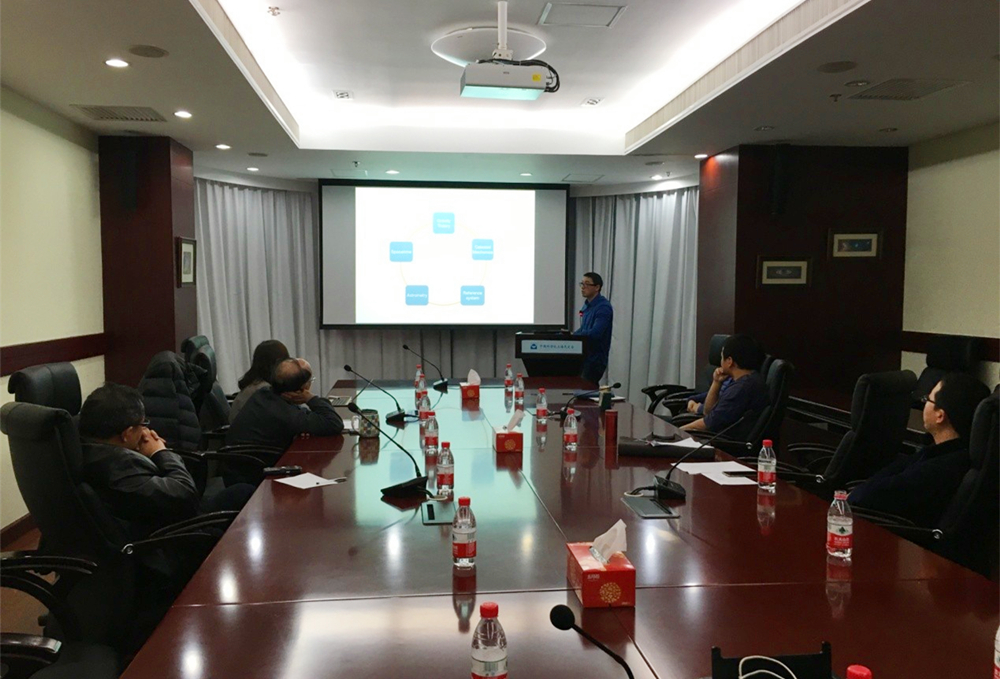The first seminar(2017) of Center for Astro-geodynamics Research was held at SHAO on January 10th, which is also a part of serial seminars co-held by CAR(Center for Astro-geodynamics Research) and KLPS(Key Laboratory of Planetary Sciences, CAR). Dozens of researchers and students attended the seminar and made effective communications as well.
Han Wenbiao and Guoli, from the research team of “Radio Astrometry and Celestial reference system” gave us impressive presentations on their own fields respectively.
The title of Han Wenbiao’s presentation is “Relativity in Fundamental Astronomy: Conceptions and Progresses”. In the presentation, he first introduced the background of relativistic fundamental astronomy, including time-space theory of general relativity, basic conceptions of relativistic fundamental astronomy and the resolutions of reference systems given by IAU, and then discussed the application of general relativity in astronomy and observation technologies was also discussed. He further showed his research progresses on relativistic ellipsoid, VLBI model and so on were in details.
And Guo’s topic is “A pulsar-based time standard from the International Pulsar Timing Array”. We have used the first data release from the International Pulsar Timing Array (IPTA) to develop a pulsar-based time standard and have compared this time standard with Terrestrial Time as realized by International Atomic Time and with the post corrected realization of Terrestrial Time from the Bureau International des Poides et Mesures(BIPM). We show that the pulsar observations can detect the steering of International Atomic Time that occurred in the late 1990s. The IPTA time standard is consistent with Terrestrial Time as realised by BIPM confirming that this is the best available international atomic time standard in terms of long-term stability. Based on estimates of the stability of the pulsar time scale and atomic time scales, we expect that the pulsar time standard will significantly contribute to Terrestrial Time standards in coming decades.
The attendees (researchers and students) also took an active part in the discussion. They, according to their own research area, questioned the presenters on aspects they are interested in, exchanged views, and furthermore, gave practical suggestion on future research.
